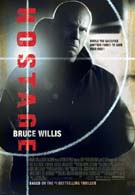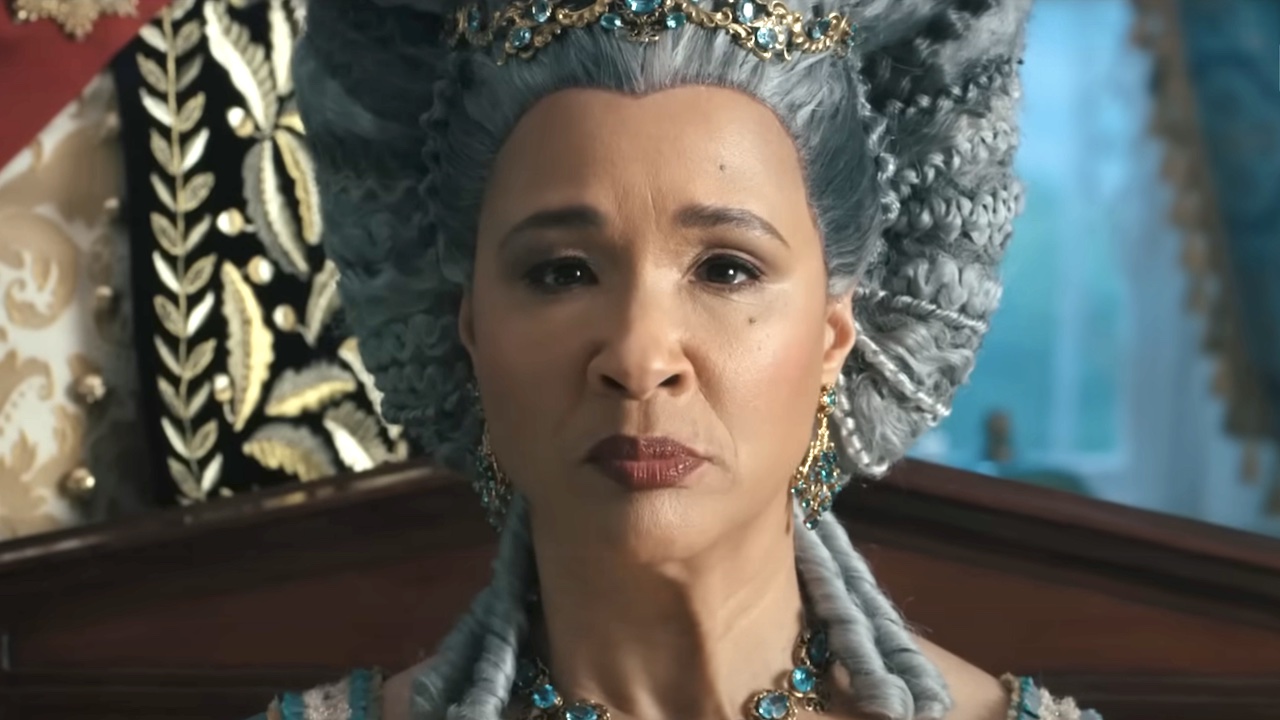Promising a return to Die Hard era Bruce Willis, Hostage rifles on to theater screens everywhere this weekend. This of course begs the question: Do we want Die Hard era Bruce back? My gut reaction is that I do not. The man’s not as young as he once was. At some point, like Stallone and Arnold, he’s going to have to bow out of these action roles. At some point, he’ll have too many wrinkles to be a believable action hero. In fact, he’s nearly there now. More than that, Willis’ recent slate of films has been interesting and much more significant than his Die Hard work. Sure those Die Hard movies are a lot of fun, but give me the nuanced, delicate performances of Willis in The Sixth Sense or Unbreakable over that. In short, there’s no good artistic reason for going back. Bruce Willis is going back anyway and in doing so perhaps hopes to make a lot of money off square-jawed alpha-males ill-content to watch any movie where things aren’t being shot the heck up. Luckily for the rest of us, not only does Hostage shoot things up, it throws in a little thriller drama as well.
In fact, Hostage takes a kitchen sink approach to the thriller genre, throwing in elements from all types of similar films. It’s a siege movie, a hostage movie, a burned out cop movie, a kid uses crazy gadgets to defend his house movie. The result is a story that feels original as a whole, but looks derivative when broken down into pieces. Stir Die Hard, Home Alone, The Glass House, Panic Room, The Crowe, and even Unbreakable into a nice frothy stew and you’ll come out with something that closely resembles Hostage. In an era where just about everything in film is ripping off someone else, I’m not sure that’s really a negative. The fact that director Florent Emilio Siri has managed to put so many different things in his pot and bring them to a fresh boil is actually something of a worthy achievement.
Opening with a credits sequence lifted from the cover of a cheap Tom Clancy novel, Hostage introduces us to Jeff Talley (Bruce Willis) in the midst of a hostage negotiation. Clad in a Hawaiian shirt and calmly combing his thick unruly beard, my first impression was that The Dude had taken a new job working for The Man. But Talley’s relaxed demeanor soon fades as the hostage negotiation goes bad, and the psycho on the other end of the line starts shooting. Shell shocked by his failure to save innocents, Talley shaves off all his body hair and moves to a small, wealthy community with his family where he serves as the town Sheriff.
One of the most refreshing things about this film is that they’ve stayed away from casting characters out of the stock pool of “pretty people” knocking around Hollywood begging to be in movies. Maybe they’re just trying to make Bruce Willis look more like a “star” by comparison, but whatever the reason the actors cast look real. Jeff's teenage daughter (played by Willis’ real life daughter Rumer) doesn’t look like a model, and his wife (Serena Scott Thomas) doesn’t resemble a younger, hotter version of Demi Moore. They along with everyone in the movie are simply nice, normal looking people. Talley and his wife are having nice, normal problems too. They’ve hit a rocky patch in their marriage, and their daughter fears divorce. Jeff is still grappling with feelings of failure after leaving his high pressure, high profile hostage negotiating job and though he claims to enjoy the “low crime” work he has now, a small part of him still wants to be a hero.
He gets his chance when a trio of teen hooligans invades a lavish mansion alone in the hills. Desperate and packing heat, the three boys enter with the intent of simply stealing a Cadillac, but end up trapped there holding a father and his two children hostage when they’re caught in mid-robbery by the cops. Lucky for them, the house they’ve holed up in is built like a fortress, not so lucky for them, the guy they’re holding prisoner works for organized crime. His bosses aren’t happy, and so they take Jeff Talley’s family prisoner, threatening to kill them unless Talley resolves the situation to their satisfaction. Talley is left playing against his fellow police officers and toying with the desperate teenage hostage takers, risking his life and the lives of the people trapped inside the house.
Willis brings his best to this thriller, getting more out of it than you might from some other action star who’d only bring a physical performance to the flick. Most of Hostage’s best moments come from Talley grappling with which lives to save. Can he live with letting the hostages die to save his own wife and daughter? The drama inside the house is no less intense. One of the three hostage takers is a psychotic killer, and has a strange tendency to resemble Brandon Lee.
With so much complex emotional drama swirling around all the shooting and creepy hostage-taker oozes over teen girl sexualizing, you’d think there’d be plenty of tension right there in the script to keep the audience interested. Composer Alexandre Desplat disagrees, choosing to batter his listeners with an overbearing, overwhelming score that seems to swell at all the wrong moments. Do we really need a long hero fanfare while Talley gets out of an ambulance in slow motion? It’s a little much.
Your Daily Blend of Entertainment News
While the film suffers a bit from cute kid in crawlspace syndrome, Hostage proves for the most part a gritty, edge of your seat surprise. Casualties come with brutal realism, even minor character deaths hit like a punch in the gut. Talley’s struggle to choose who to save is appreciably wrenching, and that makes Hostage a solid, success. Turning back the clock to Willis’s Die Hard days would be a waste of talent and at his age, pretty much impossible. Instead, Hostage seems to be splitting the difference by tying together all the best elements of Willis’s career in one well made film. It’s a return to the hardcore action of Die Hard without losing the sincere depth of Willis’s recent career.

